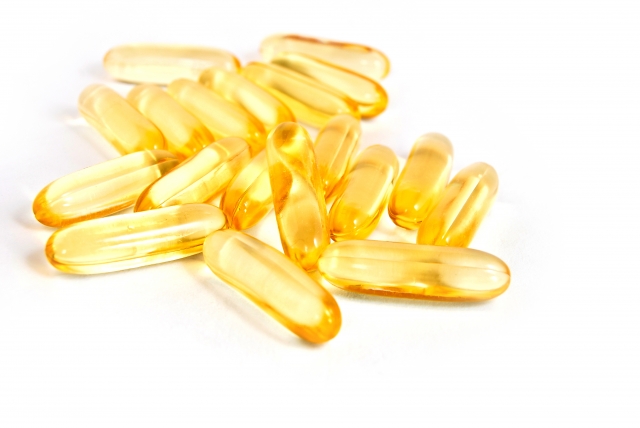
En välgjord, kontrollerad, randomiserad studie visar att D-vitamin i Covid-19-patienter drastiskt minskar risken för behov av intensivvård.
Studien summerar att
“Administration of calcifediol or 25-hydroxyvitamin D to hospitalized COVID-19 patients significantly reduced their need for Intensive Care United admission.
Calcifediol seems to be able to reduce severity of the disease.”
Studien utfördes på 76 personer som var inlagda på sjukhus för Covid-19, det nya coronaviruset. 50 utav dem lottades att behandlas med D-vitamin, utöver vanlig vård, medan 26 inte fick D-vitamin.
Utav de 50 patienter som behandlades med D-vitamin behövde bara en, dvs 2%, intensivvård. Medan 13 av de 26 obehandlade patienterna, dvs 50%, krävde intensivvård. Väldigt tydliga, och signifikanta, resultat.
Ur studien:
The vitamin D endocrine system may have a variety of actions on cells and tissues involved in COVID-19 progression especially by decreasing the Acute Respiratory Distress Syndrome. Calcifediol can rapidly increase serum 25OHD concentration. We therefore evaluated the effect of calcifediol treatment, on Intensive Care Unit Admission and Mortality rate among Spanish patients hospitalized for COVID-19.
Design
parallel pilot randomized open label, double-masked clinical trial.Setting
university hospital setting (Reina Sofia University Hospital, Córdoba Spain.)Participants
76 consecutive patients hospitalized with COVID-19 infection, clinical picture of acute respiratory infection, confirmed by a radiographic pattern of viral pneumonia and by a positive SARS-CoV-2 PCR with CURB65 severity scale (recommending hospital admission in case of total score > 1).Procedures
All hospitalized patients received as best available therapy the same standard care, (per hospital protocol), of a combination of hydroxychloroquine (400 mg every 12 hours on the first day, and 200 mg every 12 hours for the following 5 days), azithromycin (500 mg orally for 5 days. Eligible patients were allocated at a 2 calcifediol:1 no calcifediol ratio through electronic randomization on the day of admission to take oral calcifediol (0.532 mg), or not. Patients in the calcifediol treatment group continued with oral calcifediol (0.266 mg) on day 3 and 7, and then weekly until discharge or ICU admission. Outcomes of effectiveness included rate of ICU admission and deaths.Results
Of 50 patients treated with calcifediol, one required admission to the ICU (2%), while of 26 untreated patients, 13 required admission (50%) p value X2 Fischer test p < 0.001. Univariate Risk Estimate Odds Ratio for ICU in patients with Calcifediol treatment versus without Calcifediol treatment: 0.02 (95%CI 0.002-0.17). Multivariate Risk Estimate Odds Ratio for ICU in patients with Calcifediol treatment vs Without Calcifediol treatment ICU (adjusting by Hypertension and T2DM): 0.03 (95%CI: 0.003-0.25). Of the patients treated with calcifediol, none died, and all were discharged, without complications. The 13 patients not treated with calcifediol, who were not admitted to the ICU, were discharged. Of the 13 patients admitted to the ICU, two died and the remaining 11 were discharged.Conclusion
Our pilot study demonstrated that administration of a high dose of Calcifediol or 25-hydroxyvitamin D, a main metabolite of vitamin D endocrine system, significantly reduced the need for ICU treatment of patients requiring hospitalization due to proven COVID-19. Calcifediol seems to be able to reduce severity of the disease, but larger trials with groups properly matched will be required to show a definitive answer.
Betyder detta att alla bör ta D-vitamin förebyggande? Nej, det tycker jag inte. Jag instämmer till stor del med det Morley Robbins säger i våra podcasts om D-vitamin. (Lyssna främst på avsnitt 218-221, och då särskilt på https://4health.se/219-morley-robbins-d-vitamin-mineralerna-i-din-kropp-2 ) Vilket är att D-vitamintillskott kan sätta annat ur balans i kroppen. Bl.a. kan en obalans mellan vitamin D och A, hindra A-vitamin. Vilket i sin tur behövs för koppar / ceruloplasmin, vilket i sin tur behövs för cellenergi, användningen av järn i kroppen mm. Men att ta D-vitamin tillfälligt vid infektion är något jag själv använder mig av ibland.
Mer via https://4health.se/?s=corona
https://www.sciencedirect.com/science/article/pii/S0960076020302764

Hej Anna! Vid vilka infektioner har du använt D-vitamin?
Tack på förhand,
Baiba
generellt – om jag känner att jag håller på att få feber, tex vid förkylning eller influensa . Då kör jag örter, vitlök etc (sök på hostmedicin här på sidan) och ofta även D-vitamin och lite annat